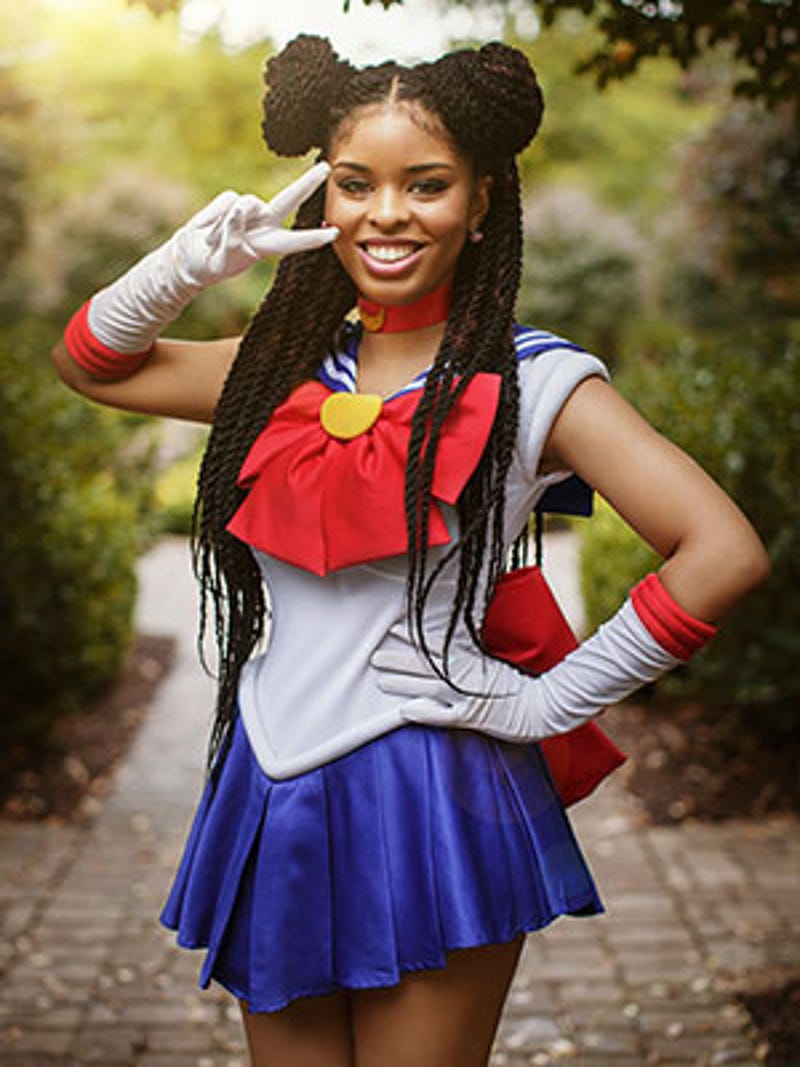There are countless misconceptions about people of all races and creeds. Like white people can't dance, all Jamaicans like spicy food or black people like grape Kool-Aid.
None of which is always true.
These preconceived notions not only box us into ideas people foreign to our unique cultural experiences have about our likes and dislikes, but can easily come off as racially insensitive.
We all haven't seen every single Tyler Perry movie and we don't always want Iyanla Vanzant to fix our lives.
And yes, we do wear sunblock on very hot days at the beach.
That is why we compiled a list of five myth-busters concerning black folks and the things many of us actually enjoy doing despite common belief.
1. Watch anime

Yes, black people watch anime contrary to common belief or those who may not even consider it at all. Some of us have seen every episode of Naruto, Death Note, and Attack on Titan, attend comic book conventions like it were our religion and dabble in the occasional cosplay.
In 2014, Blerds (Black Nerds) took a spin on the topic highlighting 10 black celebrities who have admitted to being major anime fans.
2. Walk in the rain without an umbrella.

Another misconception about black people, especially black women, is that we don't like to get our hair wet. Granted, like everything on this list, not all things apply to all black men and women.
Before going natural, walking out in the rain wasn't an option. But since then, umbrellas only come out in monsoons.
Some black women, natural or not, do not shy away from freely strutting through the rain without something covering their heads. Obviously, there is nothing wrong with not wanting your hair to get wet. As for those who do not care, it can come as a shocker to those who do not have our hair textures and immediately pass judgment on those of us who do not want to dive in a pool without a shower cap or make assumptions of those who plunge in the deep-end curls unbothered and all.
3. Travel the world

Black people travel. Period.
Not entirely sure if this misconception stems from lack of mass media representation spotlighting black people traveling or what, but like every other myth on this list:

Though there are challenges black people face regarding traveling to foreign countries to which white people can't relate such as worrying if that country discriminates against and is not welcoming to black people, we have several stamps in our passports, possess jobs that keep us on the red-eye and even study abroad.
Even companies like Travel Noire have dedicated their mission towards shifting the narrative for black millennials traveling around the globe.
4. Listen to music genres other than Hip-Hop, R&B and Gospel

There's no secret that a lot of white people listen to Kendrick Lamar or watched Straight Outta Compton in theaters opening week. So why does it come as such a surprise when a black person says that they listen to Ed Sheeran, Coldplay or Queen?
Our music playlists are diverse and our tastes can range from country to alternative rock to indie and folk tunes.
5. Eat Vegan

Veganism is not a practice unknown to black people. We don't all like the taste of meat. Some of us hate the smell of chitterlings, ham hocks and pig's feet. Whatever may be the reason for converting to veganism whether to minimize harm to animals, you have special dietary needs that resorting to a plant-based diet only is healthiest, or simply by sheer choice, black people can be vegans and vegetarians.
Civil rights activist, Dick Gregory, who practiced veganism for 30 years up until his passing this August is a prime example of such.
6. Play winter sports.

You've heard the saying "black people and snow don't mix." It's nothing new that many black people are more sensitive to cooler temperatures than some other cultures. Our aversion to cold weather, aka snow, is biological, but it does not incapacitate us.
Black people take trips to the mountains. We ski, snowboard, ice skate and even bobsleigh.
Jamaica even has a national bobsleigh team. Remember the movie Cool Runnings, the popular 1990s film that was loosely based on a true story?

7. Have faith outside of Christianity.
For the record, there are black Jews, black Buddhists and black Hindus.
Surely a wide populace of black worshippers is found under Christian denominations such as Baptist, Pentecostal, Church of God, Church of Christ, Church of God in Christ, (you get the jest).
However, black people are also found amongst believers of non-Christian religions too such as Judaism, Islamic, Confucianism, etc.
Who remembers this scene from the Tina Turner biopic starring Angela Bassett, What's Love Got to Do With It?
Most, if not all of us, have experienced racial microaggressions, sometimes at a young age, such as "you talk like a white girl" or "you aren't like most black guys" whether you heard it from other black folks, your own distant relatives who you see once a year or white people.
Frankly, explaining how such ignorance can create awkward and often times volatile situations can be exhausting and idle.
There is no single definition of our blackness. It is what we make it, not what others who've seen Friday or those who know the lyrics to The Fresh Prince of Bel-Air theme song make us out to be.
You can be 'woke' and prefer sushi over fried chicken. Your Spotify channel can have a little Beyoncé and a whole lot of Mumford and Sons if that is what you are in to. You don't have to hide the fact that you don't know how to twerk.
Like everyone's favorite unapologetic black girlfriend Joelle from Netflix's Dear White People said, “Sometimes being carefree and black is an act of revolution.”
And sometimes, embracing what you love unapologetically without conforming to what people think black people should not do to be considered "black enough" is being carefree.
